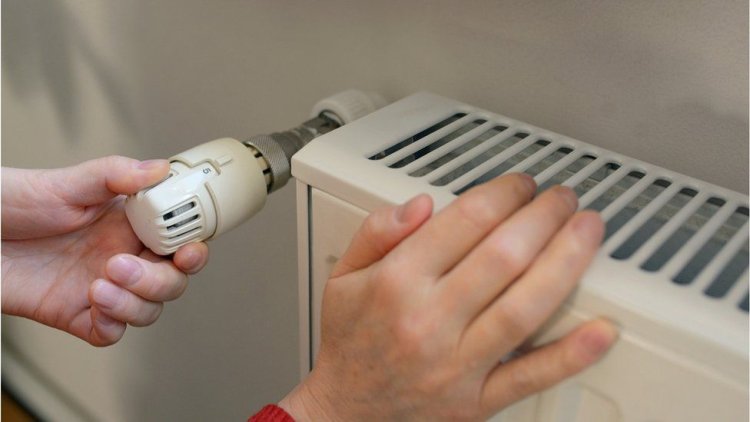Germany issues a gas supply warning due to a payment dispute with Russia.
The goal of the early warning, according to Klaus Mueller, head of the German network regulator Bundesnetzagentur, is to avoid a supply decline. Consumers and businesses should be prepared for "all scenarios," he said.

Amid a financial dispute with Russia, Germany has issued Lennon an "early warning" about a probable gas supply disruption.
From March 31, Russia demanded that "unfriendly" countries pay for its gas in roubles, but the EU, which primarily pays in euros, rejected the plan.
Moscow appeared to soften its stance later, indicating on Wednesday that rouble payments will be phased in.
Germany, on the other hand, has urged consumers and businesses to cut back on their usage in anticipation of future shortages.
Germany imports roughly half of its gas and a third of its oil from Russia and has warned that if supplies are disrupted, the country might face a recession.
Under an existing gas emergency plan, the "early warning phase" is the first of three steps designed to prepare the country for a potential supply shock.
The government would impose gas rationing in the final stages of the project.
Germany's economy minister, Robert Habeck, said gas supplies were safe for the time being, but that preventive steps were being increased in case Russia escalated the situation.
The goal of the early warning, according to Klaus Mueller, head of the German network regulator Bundesnetzagentur, is to avoid a supply decline. Consumers and businesses should be prepared for "all scenarios," he said.
Dmitry Peskov, a spokesperson for the Kremlin, announced on Thursday that Russia will no longer require rouble payments.
"Payments and delivery are time-consuming processes... from a technology standpoint, this is a longer procedure," he explained.
In response to Russia's invasion of Ukraine, the West has imposed sanctions on it.
Russian President Vladimir Putin has responded by demanding that natural gas exported to Europe be paid for in roubles.
Analysts believe the decision will help the country's currency, which has begun to recover after a severe drop following the invasion.
Europe, which buys roughly 40% of its gas from Russia and pays primarily in euros, claims that Russia's state-owned gas giant Gazprom is unable to renegotiate contracts.
"European politicians ought to stop talking, stop trying to find some reason for why they can't pay in roubles," Vyacheslav Volodin, the speaker of the Russian parliament's lower house, said on Wednesday.
"If you want gas, find roubles."
The Kremlin also said Russia could start demanding payment in roubles for other commodities such as fertilizer, grain, metals, and timber.
'Every kilowatt counts,' says the author. BBC News Berlin's Damien McGuinness
Berlin's announcement of an "early warning" of a gas emergency has been greeted positively by German industry leaders. Because if Russia shuts off the taps, German industry would be the first to suffer from gas shortages.

Households and emergency services, such as hospitals, would be prioritized if Germany were obliged to limit gas.
This would be especially painful for manufacturers who rely on gas for production, driving up prices and maybe causing job losses.
This early warning stage will help firms plan for potential future shortfalls by bringing together a crisis group of government leaders daily.
German Economy Minister Robert Habeck is also hoping for popular support and has urged people to conserve energy whenever feasible. He stated, "Every kilowatt helps."
There have been no gas shortages so yet, and Germany has ample reserves. However, Russia has failed to keep German gas reserve tanks properly stocked over the last year, leading some to assume that the Kremlin has had a long-standing plot to deploy gas as a weapon against Europe.
European initiatives
Greece announced on Wednesday that it would convene an emergency meeting of its energy regulator, network operator, and largest gas and electricity suppliers ahead of the March 31 deadline set by Moscow.
On Wednesday, the CRE regulating authority assured French citizens that there was no reason to be concerned about gas supplies.
"Everything will be great," CRE head Jean-François Carencro said. "The gas storage tanks are well stocked, and we'll make it through the winter."
By the end of this year, Polish Prime Minister Mateusz Morawiecki stated the government would stop using Russian oil and gas and replace it with Norwegian supplies. It imports over 60% of its natural gas from Russia at the moment.
Mr. Morawiecki added, "There can be no replay of the idiocy, the criminal, a poor policy that made [Europe] dependent on Russia and provided it euros and dollars so that Putin could construct his war weaponry and threaten its neighbors."
'Chicken game' is a term used to describe a game in which
S&P According to global energy researcher Laurent Ruseckas, Russia and the EU are playing "chicken" to see who will back down first.
"Putin started it last Wednesday with his first comment about mandating the switch to rouble payment, and now the EU has responded on a political level, saying, 'Well, no, we won't,'" he told the BBC World Service. "Something has to give in this situation."
He believes the EU and Gazprom would most likely seek a solution by redrawing contracts since both parties are interested in ending the standoff.
Russia presently receives €400 million (£340 million) each day from EU gas sales, and it has no way of diverting this supply to other markets.
Mr. Ruseckas, on the other hand, believes there's a potential "the brinksmanship leads very soon to a cut-off." Germany would be forced to run more coal plants, import as much liquefied natural gas as feasible, and create more renewable energy generation in the long run as a result of this.

 Boakyewaa Lawrencia
Boakyewaa Lawrencia 


































